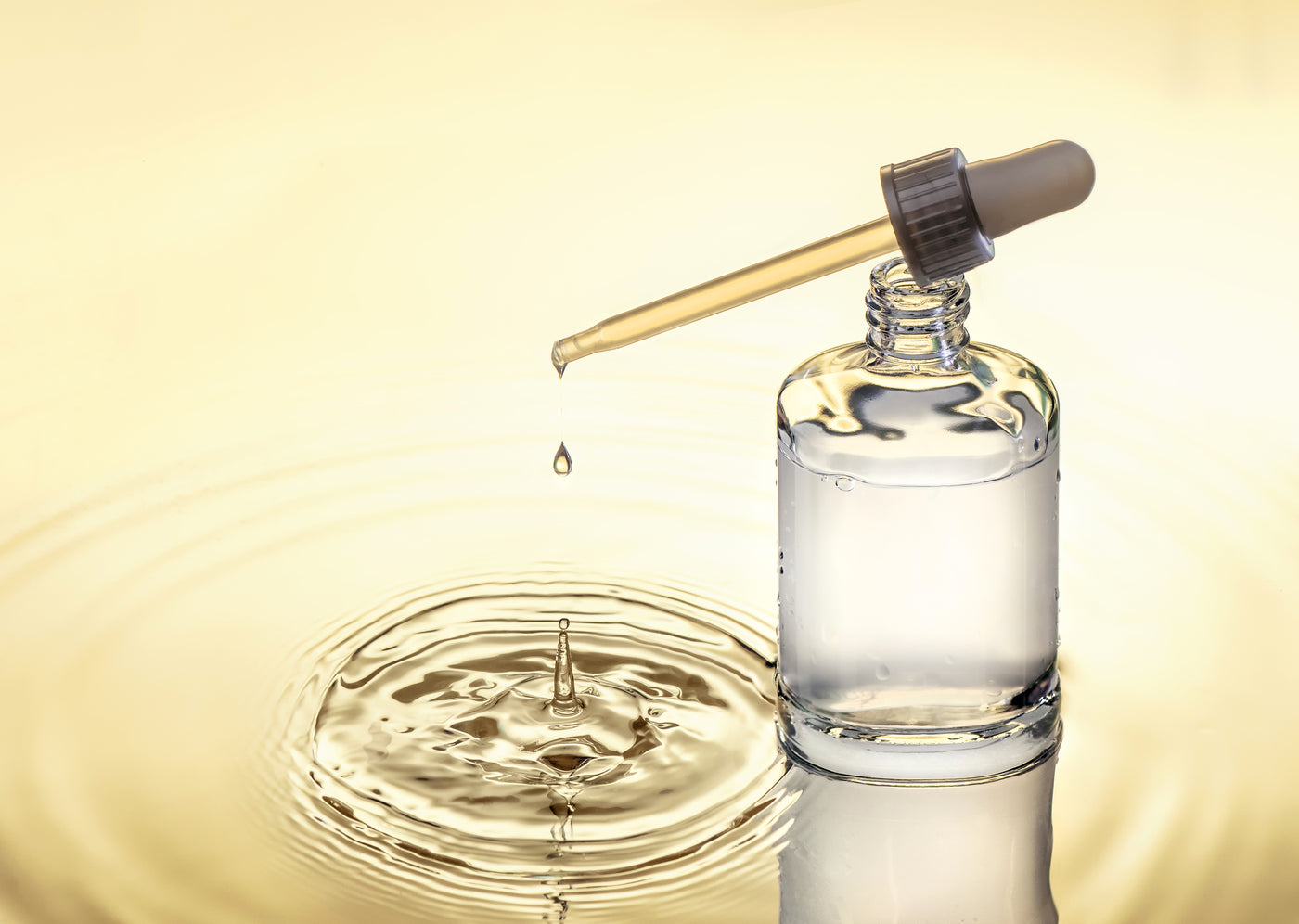
SERUMS AND THE KEY TO MAKING THEM WORK
Serums are often a key skincare step a good one can take your skin from good to great, and is worth investing in. Unlike creams that form a protective barrier of hydration, serums are typically made from more active ingredients that contain molecules small enough to penetrate deep into the dermal layer of the skin and deliver intensive doses of collagen boosters, antioxidants and anti-aging ingredients. Serums can also help deliver water-soluble ingredients, like vitamin C, beyond the skin’s surface for deeper absorption.
Serums do not replace your moisturizer, but are recommended to add to your existing skin-care routine. Even though they can be chock-full of moisturizing ingredients to help skin retain moisture, this doesn’t make them moisturizers. Serums carry active ingredients deep into the dermis where they can be most effective or a serum can act as a booster to your existing moisturizer to make it more effective. Your moisturizer can then form a hydrating barrier on of the layers to keep ingredients locked in.
How to add in a serum to your routine for maximize results?
To really maximize the benefits of adding a serum, follow the following instructions: First a good cleanse with warm water. Follow this with an alcohol-free toner and then your serum to a slightly damp face. Follow the serum with a moisturizer a few minutes later.
Serum recommendations by skin type:
For acne prone skin, look for vitamin C as an ingredient. Vitamin C increases collagen production, enhances skin’s repair process and reduces inflammation. Also look for retinol for antioxidant and inflammation benefits, zinc for soothing irritation and regulating oil production, and salicylic acid for pore cleansing.
For dry skin, look for vitamin E. Vitamin E, as an antioxidant, protects cells from oxidative damage. Also look for glycolic acid for exfoliation and discoloration, and hyaluronic acid for moisture retention.
If your skin appears on the dull side, look for antioxidants like green tea extract and ferulic acid. These combat free radicals and promote cell repair.
Please note: Serums are potent so more is not always better. Powerful ingredients can cause irritation on sensitive skins.
Why do you recommend the use of serums?
Serums penetrate deeper into skin’s dermal layers to deliver active ingredients deep into your skin. They carry many benefits, from clearing blemishes to smoothing wrinkles. Using a serum regularly can give your skin a firmer, smoother texture, make pores appear smaller and increase moisture levels.
Serums, often the forgotten skin care step, may be just the thing to take your skin from good to great. And that is worth investing in!

